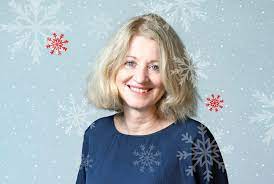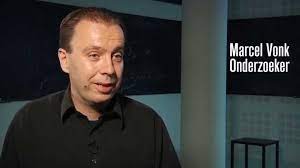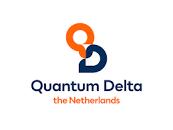Symposium QDNL AL3.6 Quantum for Younger Generation
Wieteke de Boer (TU/e), Rutger Ockhorst (TU Delft) and Doutzen Abma (CWI, Amsterdam) will organise the second Quantum Delta Netherlands (QDNL) Action Line 3.6 symposium at CWI in Amsterdam. Action Line 3.6 deals with talent/human capital for the younger generation, till 18 years.


Margriet van der Heijden (TU/e) Marcel Vonk (UvA)
Program Quantum Delta NL Youngest Generation April 14 at CWI in Amsterdam
10:30 Walk in & welcome at CWI, Science Park Amsterdam
11:00 Opening by Pieter de Witte (Director Research Programs QDNL): update QDNL-board
11:15 Deborah Nas (QDNL, AL4): Teaching children about the societal impact of quantum technologies
11:30 Margriet van der Heijden (TU/e): Scicomm, Quantum & the engineer (Abstract below)
12:00 Workshop / Brainstorm Round 1 (30 minutes)
- Applying quantum within the profile assignment (PWS) in secondary education by Maarten-Harm Verburg (VU, Amsterdam)
- 3D-printing of practical setups by Kirsten Stadermann (TU Twente)
12:30 – 13:40 Lunch
13:45 Workshop / Brainstorm Round 2 (30 minutes)
- Brainstorm: Making quantumtech captivating by Margriet van der Heijden (TU/e)
-
Educational material for Q2.0 for high schools by Henk Buisman (Leiden Univ)
14:15 Marcel Vonk (UvA) : The Quantum Universe - popularizing science straight from the source.
(Abstract below)
14:45 - 15:00 Demo Betaparners quantum-labs by two UvA-students:
Students visit high schools with quantum kits to guide quantum experiments.
15:00 -15:20 Tea Break
15:20 Workshop / Brainstorm Round 3 (30 minutes)
- Progress and difficulties on lesson materials by Rutger Ockhorst (TU Delft)
-
Quantum for Primary Education PO by Kuno Rijnhart (one day a weekschool, UvA)
15:50 Closing by Miriam Blaauboer (Coordinator of AL 3, QDNL)
16:00 Opening of the Quantum.Amsterdam Experience and drinks/snacks
17:30 End
Abstract Margriet van der Heijden (TU/e): Scicomm, quantum & the engineer.
What does an engineer do? In a study among school children in the Midwest of the USA participants mainly saw engineers as mechanics working on engines. In Being engineers were seen as performing mental tasks in office buildings. And in the Netherlands? Would children associate engineers with quantum? Or rather with dykes, dams and other infrastructure? In my presentation I propose the project ‘What does an en engineer do?’, inspired by and in cooperation with Eddie Brummelman’s Lil’Scientist. Asking children “What does an engineer do?” will reveal their stereotypes of engineers and engineering. This is important because stereotypes may, unconsciously and unknowingly, discourage some children from pursuing a career in engineering. In addition the answers may help find means to turn the perceptions of engineers into more realistic ones (e.g. by discussing quantum!).
Abstract Marcel Vonk (UvA): The Quantum Universe - popularizing science straight from the source.
www.quantumuniverse.nl is a Dutch popular science website. In this presentation I will discuss what made us create the website and how we try to achieve our main goal - to provide popular scientific information straight from its source, the researchers themselves. How do you bridge the gap in knowledge and language between those researchers and the main target groups, e.g. high school pupils and their teachers? Are difficult topics like quantum physics or relativity harder to popularize without 'twisting the truth' too much? I will present some lessons that we have learned about such questions, during the ten years that the website now has been running.
Workshop Maarten-Harm Verburg (VU): Applying quantum within the profile assignment (PWS) in secondary education
The national website www.profielwerkstuk.nl supports teachers and HAVO- and VWO-students in secondary education with the implementation and supervision of the profile assignment (in Dutch: ‘Profielwerkstuk (PWS)’. The first mini-practicals, so-called 'pws-kits', were also developed within this initiative. In the workshop we would like to discuss how the website and these practicals can be used for communication from quantum to secondary education.
Note: given the nature of the project, this workshop will take place in Dutch.
Brainstorm Margriet van der Heijden (TU/e): Making quantumtech captivating.
Around 1900 one of the marvels of technological progress - next to for example the light bulb and the Wright flyer – was the Eiffel Tower. The 330 meter high wrought-iron construction was also meant to be a symbol of what human ingenuity can achieve through collaboration and teamwork (Fraternité). By contrast, various surveys demonstrate that new generations often perceive engineers as lacking social skills. Might this be due to the changed nature of their work? Are the surveys biased? And: will it be it possible to capture abstract technologies like quantum technology in easily accessible and captivating objects or images - especially for the under-18? I.e. to find the ‘Eiffeltower(s) of quantumtech’? Let’s brainstorm.
Workshop Henk Buisman (Leiden Univ): Educational material for Q2.0 for high schools.
In the workgroup we will discuss the plans in the various hubs for Q2.0 educational materials for high-school pupils and their teachers at pre-university level. We will first make an reporting round to make an inventory of running and proposed projects. Next we will discuss these and try to create synergy in our activities, identify uncovered areas, doubles etc.
Workshop Rutger Ockhorst (TU Delft): Progress and difficulties on quantum lesson materials.
In Delft we've written some preliminary lesson materials and tested them with teachers and students. We've made progress but also encountered some difficulties that makes us wonder what is the right path forward. For instance we struggle with gauging the right level of 'quantum' in the materials and reluctance amongst teacher to teach it. We reckon we are not unique in this respect and would like to have a frank discussion and exchange of ideas about how to best tackle such things. Of course we'll be happy to share some of our progress as well!

